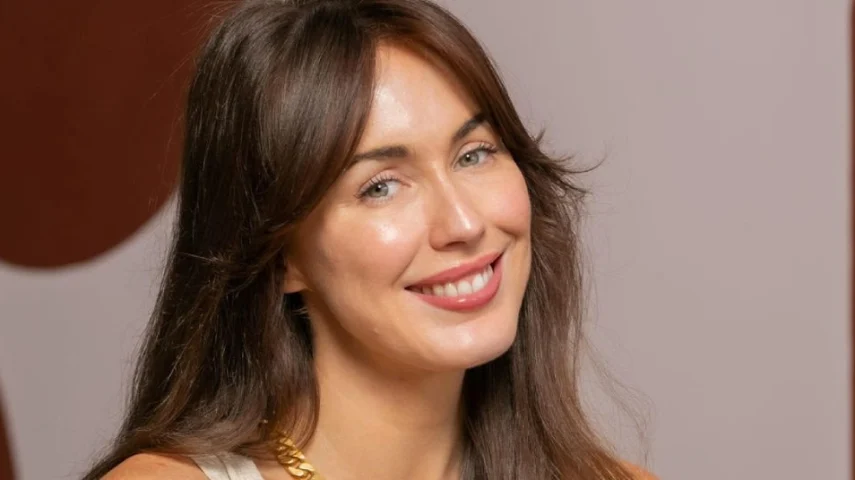Female-led start-ups need more funding, says CEO



A Forbes 30 Under 30 alum has called for systemic change to provide more funding to start-ups founded by women.
Co-founder of branding and creative agency Willow and Blake, Jess Hatzis, said low rates of funding for female-led businesses is still a barrier.
Hatzis – who is also co-founder of and chief marketing officer at skincare brand frank body and was named in the Forbes 30 Under 30 list in 2016 – said becoming an entrepreneur at a young age was challenging on multiple fronts.
“One of the challenges we faced was when we went through multiple rounds of fundraising for our business. I was only 24 years old when I started Willow and Blake, my first business,” she told Super Review ahead of her keynote address at the Women in Finance Summit this week.
“You’re dealing with a lot of men in the startup sector who predominantly give money to men. Here we were with our female-led brand, producing products for women. What became obvious to me was the disconnect between the people that had the funding and the consumer group that we were targeting.”
Indeed, while start-ups contribute significantly to Australia’s economic prosperity, women founders face numerous obstacles, especially around accessing capital.
A recent study by Deloitte Access Economics (commissioned by SBE Australia, which connects female entrepreneurs seeking funding to a global network of investors) found only 22 per cent of Australian start-ups are founded by women.
Furthermore, only 0.7 per cent of all private start-up funding in FY22 went solely to female founding teams, despite funding growing tenfold between FY18 to FY22.
As a result, women are not raising sufficient capital to scale their business, the report said.
“There needs to be more funding for female led businesses,” Hatzis said.
“There is a small shift occurring with more women working in the banking, private equity and venture capital fields, but it’s happening so slowly.”
She continued: “There’s inherent bias against women. Investors look at us and think about our potential to become mothers. As such, our work ethic and dedication to our business is called into question. But this question is not raised with men, many of whom I assume become fathers.
“We need a systemic shift, and the only way that’s going to change is if we talk about it.”
Facilitating change
In an effort to promote diversity and inclusivity in her organisations, Hatzis has implemented board mandates that stipulate minimum acceptable requirements for the number of females in leadership roles.
She said she was driven to do this to create a system that facilitates change and levels the playing field for women who have faced unconscious bias in the workplace.
Moreover, given that frank body is a skincare brand that targets women, it was important to appoint more women who understood both the product and its consumer, she said.
“These requirements allow us to create a space dedicated to women who are equally qualified for and capable of doing the role as well as their male counterpart,” she said.
“People often assume that requirements like these are going to put underserving or unqualified applicants in these roles. That’s not the case at all. It just means that instead of offering the job to someone whose dad goes golfing with the boss, women are given the chance to throw their hat in the ring and apply for the job.”
Appointing staff with diverse life experiences makes smart business sense, Hatzis added, as they provide new perspectives and make informed decisions at the board or executive level.
Grow visibility of female leaders
Another goal for Hatzis is to increase visibility of female business leaders so the next generation of women can aspire to follow in their footsteps.
“I didn’t grow up with women on television in the spotlight as leaders of businesses, so we didn’t have anyone to model ourselves on,” she recalled.
“But now, there are so many articles, television pieces, and podcasts that feature women entrepreneurs. There’s finally a role model for future generations.
She concluded: “A big part of my job now is showing examples of that for the next generation because if they don’t see themselves, they start to eliminate that option for themselves.”
In her keynote address, Jess Hatzis will describe her journey to becoming a successful entrepreneur and offer valuable tips on how other women could become leaders in financial services.
The summit will be held on Friday, 10 November at The Star, Sydney.
For more information, including agenda and speakers, click here.
Recommended for you
The $16 billion fund has teamed up with a retirement income product specialist to give its members more confidence to spend in retirement.
The super fund-owned institutional investment manager has appointed an internal candidate as its next head of operations.
The $91 billion fund has doubled down on its data security, alongside enhancing its investment strategy, with two key appointments.
The Albanese government has appointed Jim Craig as a member of the Future Fund Board of Guardians for a five‑year term.












